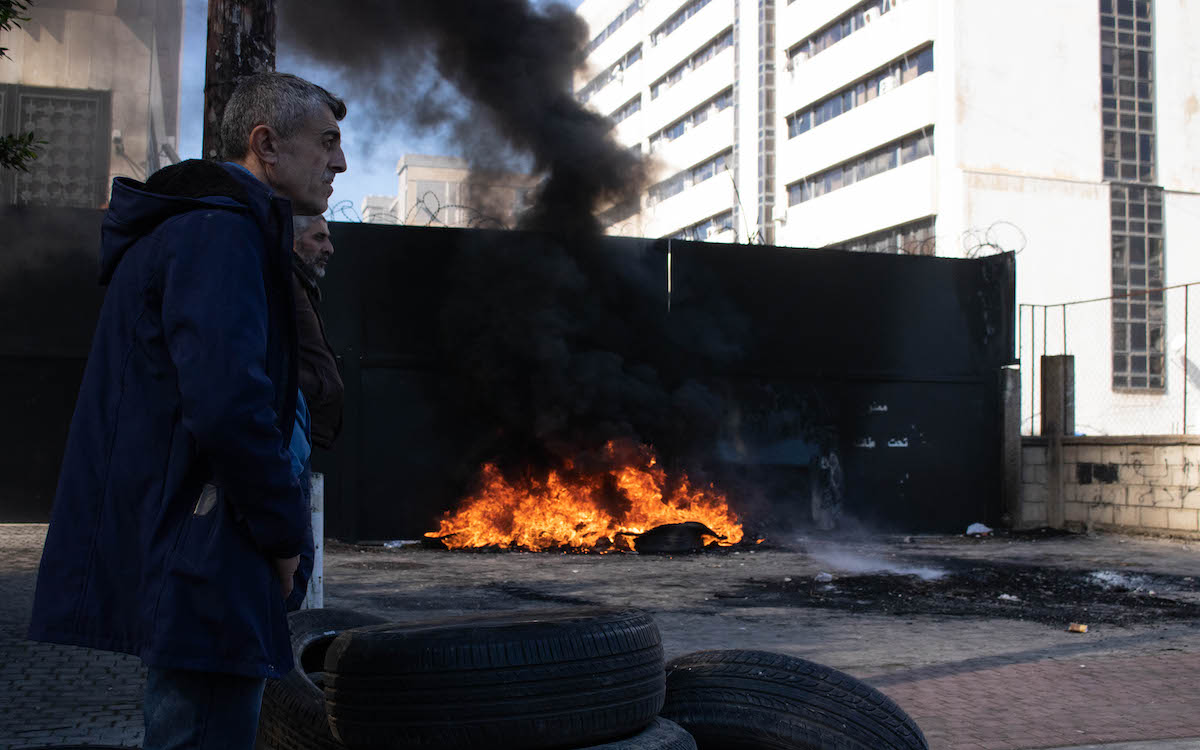
On the morning of February 27, the lira was trading at around 82,000. By the end of the day, it was reaching new record lows and continued to devalue even further into the following day.
Currently, the lira is sitting at around 88,000 to $1 and, given the recent volatility of the Lebanese currency, it could continue to devalue, raising prices and making life harder for those living in the country.
Why is the lira devaluing: Lebanon is in its fourth year of economic crisis and the ruling political class has continued to fail at passing any sort of economic and financial reforms that would go towards stabilizing the country’s ailing economy.
Instead, for the last four years, the politicians have mostly discussed the need for reforms all without actually following through with them even after they reached a staff-level agreement with the International Monetary Fund in 2022.
This has allowed the Lebanese economy to continue to spiral in freefall with nothing to stop it.
On top of this, the banks have implemented informal capital controls that have drastically limited how much money depositors are able to withdraw each month as well as in which currency.
At the start of February, the Central Bank raised the official exchange rate to 15,000, a significant jump from the 1,507 that it had been set at in the 1990s. However, while this was meant to work towards unifying Lebanon’s many exchange rates, without the tangential reforms also implemented, it has only served to deepen the crisis by pushing the value of the lira even further down and raising inflation.
The presidential angle: On top of not having passed and implemented any of the necessary reforms, Lebanon has been without a president for 120 days after Michel Aoun’s term came to an end on October 31.
Normally, when Lebanon has no president, Article 62 of the Lebanese Constitution stipulates that the government would run the country through delegation, but the government Najib Mikati only holds a caretaker status as the prime minister was unable to form a government following the May 15 parliamentary elections.
Since the government only has a caretaker status, the government cannot temporarily fill the role of the presidency and can, in essence, only perform triage on the country since they are limited to the portfolios that it had prior to its resignation.
Parliament also entered into a special electoral session on September 28, 2022, meaning that, constitutionally, the legislative body is not allowed to take on any other business until they have successfully elected a new president. So far, Parliament has failed 11 times to elect a president with the last attempt taking place on January 19 with no other session having been held since then.
The only stipulation given to this rule is if Parliament needs to meet to work on a topic that is considered an emergency, something that is only vaguely defined and has, so far, been opposed by the majority of MPs up to this point.
The consequences: As the crisis continues without politicians taking any serious action, the cost of living will only increase while the quality of life goes down.
Already the country is becoming more and more dollarized with caretaker Economy Minister Amin Salam stating that, as of March 1, supermarkets will be required to put the prices of their products in dollars so that people can “know the prices of goods.”
Even if people know what something costs, it does little to help them afford it as the value of the lira goes down, making the list of products that have become unaffordable to many in Lebanon only grow.
Due to the worsening living conditions in Lebanon, this has led to workers from various fields going on strike or protest.
Public school teachers in Lebanon have been on strike since January 9 as their salaries can barely cover their transportation costs. The olive branch made by the government of five liters of fuel to help with the teachers’ expenses is unlikely to convince them to end their strike if they cannot even afford to feed their families.
Public workers in Tripoli have also staged protests in front of BDL’s northern branch, demanding that their salaries be paid according to circular 161 which would see them paid at BDL’s Sayrafa rate.
In the southern city of Tyre, municipal workers stormed a local SGBL branch, detaining the employees there and closing the doors to the bank in protest of them not receiving their salaries for the second month in a row.
What next: Lebanon’s economic crisis is not going to end anytime soon, and it will take the country even longer to begin recovering until its politicians take action and work toward rebuilding the country.
In the meantime, the situation is only expected to worsen, and the lives of those residing in Lebanon will become harder.
Nicholas Frakes is a senior reporter with @NOW_leb. He tweets @nicfrakesjourno.








